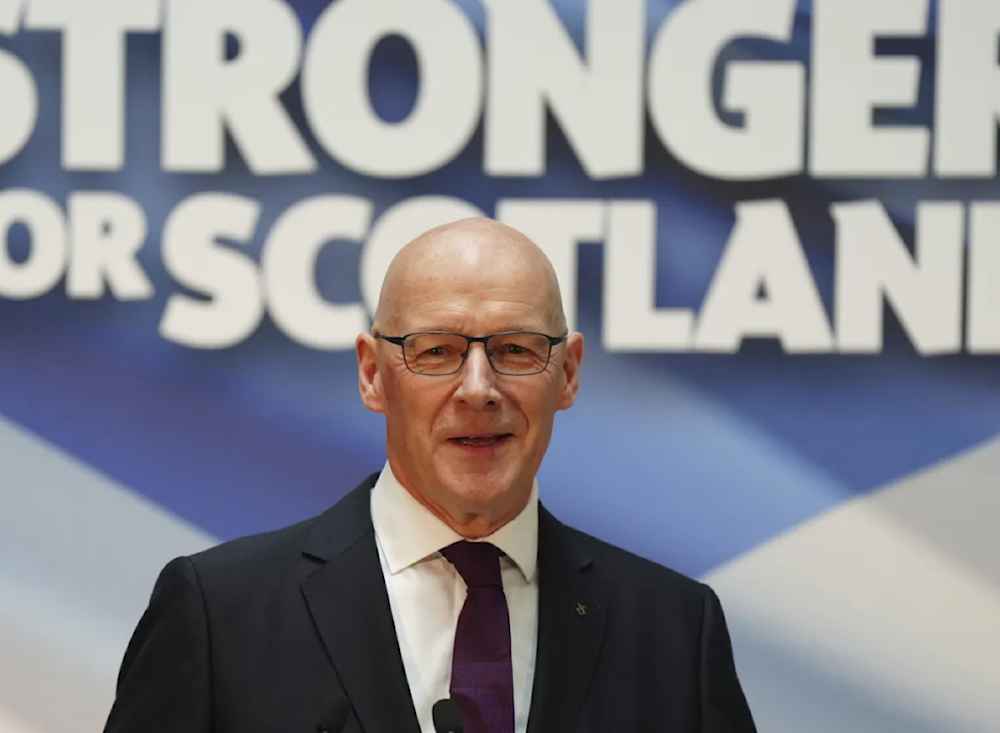Scottish parliament approves John Swinney as new leader
In addition to advocating for Scottish independence, Swinney's main policy goal is to eliminate child poverty.
-

Newly-elected leader of the Scottish National Party (SNP) John Swinney delivers his acceptance speech at the Advanced Research Centre (ARC) of the Glasgow University in Glasgow on May 6, 2024. (AP)
Scotland's parliament endorsed John Swinney on Tuesday as the country's next leader, one day after naming him head of the dominant pro-independence Scottish National Party.
Swinney, 60, was voted as the leader on Monday, replacing Humza Yousaf, who officially stepped down earlier in the day after announcing last week that he would stand down after little over a year in office.
He received the support of 64 MPs in a vote that was almost certainly predetermined, with the nearest opponent Scottish Conservatives leader Douglas Ross receiving 31.
Swinney informed reporters that, in addition to advocating for Scottish independence, his main policy goal is to eliminate child poverty.
However, he inherits a tough political legacy, with former SNP leader and ally Nicola Sturgeon mired in a party finance controversy and an uncertain domestic policy picture.
The SNP is anticipated to lose numerous seats in the UK parliament at Westminster to a resurgent Labour Party in a general election later this year.
Opponents claim that the SNP, which has been in power in Edinburgh's devolved parliament for 17 years, is prioritizing independence over matters such as the cost of living and health.
Since Scotland's rejection of leaving the UK in a referendum in 2014, the party has struggled to regain support for a second vote.
According to public surveys conducted in April, support for independence had dropped to between 41 and 43%.
With the SNP leading a minority administration in Scotland's 129-seat parliament, Swinney will need the cooperation of another party to establish a governing coalition or enact legislation.
Swinney has stated that he will not revive the defunct power-sharing agreement between the SNP and the Scottish Greens, known as the Bute House Agreement, and will handle situations on a case-by-case basis.

 2 Min Read
2 Min Read








